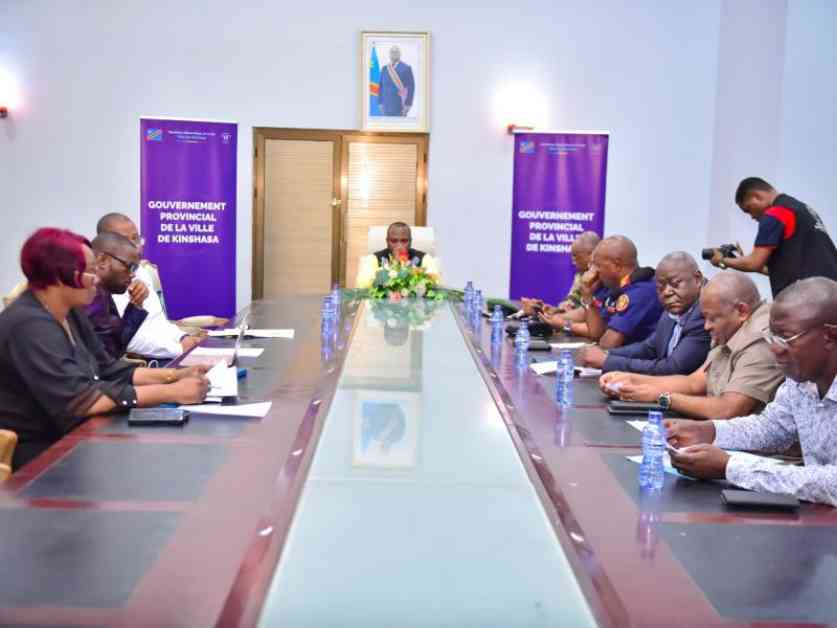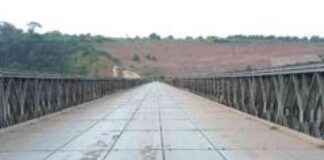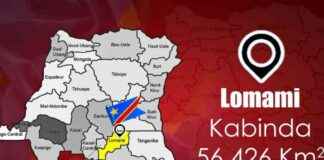Maintaining the Ban on Protests in Kinshasa: Provincial Government Takes Action
In the bustling city of Kinshasa, tensions ran high as acts of vandalism marred the streets, prompting Governor Daniel Bumba to address the situation head-on. Following a day of unrest, the provincial council of Kinshasa convened for the second time in 24 hours to assess the state of affairs and make a crucial decision. The local government opted to uphold the ban on protests, initially implemented to prevent further violence from erupting on the streets. Minister of Interior Affairs, Thierry Tshitenga Kabuya, cited the need to quell the wave of looting and destruction that had targeted embassies, businesses, and private residences as the primary reason behind this resolution.
Governor Daniel Bumba expressed his satisfaction with the public’s compliance with the ban throughout Kinshasa on Wednesday, January 29, 2025. Emphasizing the paramount importance of maintaining public order, he urged the population to voice their concerns in a peaceful and responsible manner. The call for restraint came in the wake of a series of protests on Tuesday, January 28, where demonstrators gathered outside various embassies to demand greater international intervention in the pacification efforts in the eastern region of the DRC.
The protesters denounced the presence of M23 fighters and Rwandan forces in Goma and called for their immediate withdrawal. The demonstrations turned violent, with tires set ablaze and anti-Western slogans reverberating through the streets. The embassies of the United States, Kenya, France, Belgium, and Rwanda found themselves in the crosshairs of the demonstrators’ ire. The Kenyan embassy suffered vandalism, prompting two diplomatic personnel to evacuate the premises. In response, the US embassy announced its closure to the public until further notice, advising its citizens to depart the country while commercial flights remained available.
In light of these escalating tensions, Congolese authorities expressed remorse for the acts of violence and assured the public that steps had been taken to bolster the security of diplomatic missions. Meanwhile, the embassies urged their nationals to exercise caution and avoid non-essential travel in the current climate of unrest.
Expert Insights: Navigating Political Turbulence in Kinshasa
Political unrest is not a new phenomenon in Kinshasa, a city teeming with a vibrant tapestry of cultures, histories, and ideologies. Dr. Jeanne Mwema, a political analyst specializing in African affairs, sheds light on the complexities of the current situation. “Kinshasa has long been a crucible of political dissent and social upheaval. The recent protests underscore simmering tensions over regional security issues and the role of foreign powers in shaping the DRC’s future,” Dr. Mwema explains.
As the provincial government grapples with maintaining law and order, the delicate balance between safeguarding public freedoms and preserving stability hangs in the balance. Dr. Mwema emphasizes the need for constructive dialogue and inclusive governance to address the root causes of discontent. “Kinshasa stands at a crossroads, where the voices of the people must be heard, and grievances addressed through peaceful channels. The path forward hinges on fostering a climate of trust and transparency, where all stakeholders can contribute to a shared vision of a peaceful and prosperous Kinshasa,” she concludes.
Community Resilience: Kinshasa’s Spirit Shines Through Adversity
Amidst the turmoil and uncertainty gripping Kinshasa, stories of resilience and solidarity emerge from the community. Local residents have rallied together to support one another, offering aid to those affected by the recent unrest. “Despite the challenges we face, the people of Kinshasa remain resilient. We draw strength from our shared history and cultural heritage, standing united in the face of adversity,” remarks Marie Kabeya, a lifelong resident of Kinshasa.
As the city navigates turbulent waters, the indomitable spirit of Kinshasa’s residents serves as a beacon of hope, inspiring collective action and fostering a sense of unity in the face of adversity. “We are stronger together, bound by our common humanity and shared aspirations for a brighter future. Kinshasa will rise above this moment of crisis, emerging stronger and more united than ever before,” Kabeya reflects, echoing the sentiments of many in the resilient community of Kinshasa.

















